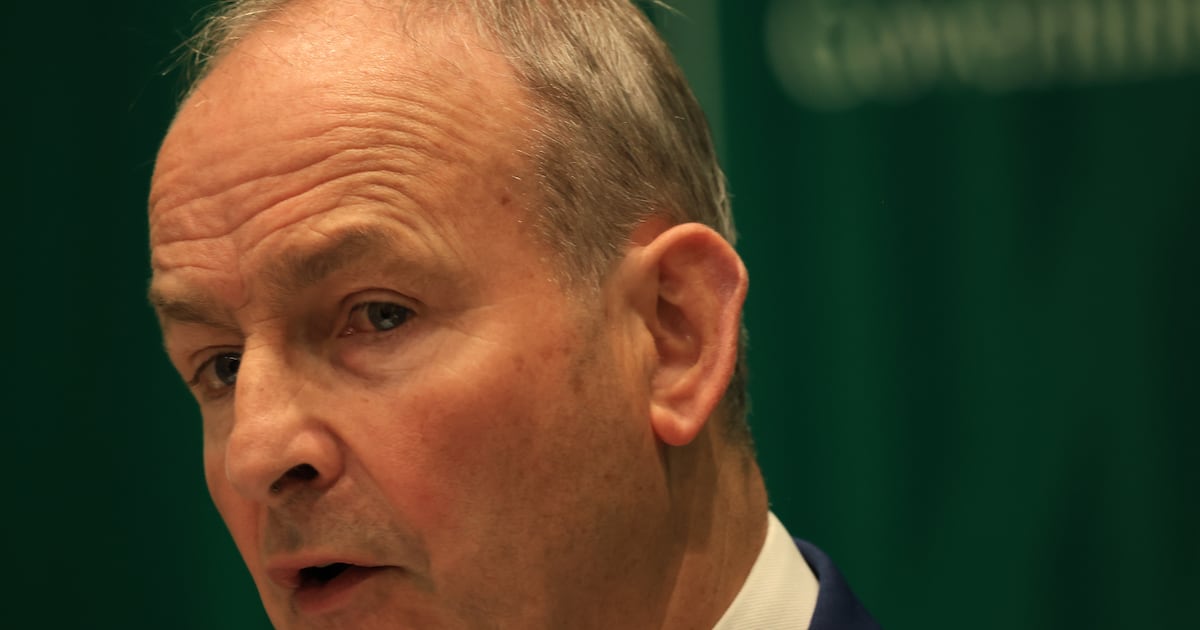Politics
EU and US Trade Deal Hopes Rise Ahead of Weekend Talks

A preliminary agreement on trade tariffs between the European Union and the United States could be finalized by the end of the weekend, according to Taoiseach Micheál Martin. Negotiations are intensifying as EU representatives aim to prevent the higher import duties threatened by US President Donald Trump, which would significantly impact goods imported from Europe.
Speaking on Friday in Luxembourg, Martin cautioned against making predictions regarding the timing of the agreement but expressed optimism that a framework could soon be established. He emphasized the need for a comprehensive tariff structure that would allow for future discussions on specific products. “We’re certain there will be detailed discussions afterwards in respect of line by line, in terms of many, many products,” Martin stated.
The current draft of the agreement proposes that the EU would accept blanket tariffs of 15% on future trade with the US, an increase from the 10% tariff introduced by Trump earlier in April. The European Commission, which is leading the negotiations, aims to cap any new tariffs on pharmaceuticals at this same rate. Additionally, the EU is seeking a reduction in the 25% tariffs currently imposed on EU-made cars.
As uncertainty regarding Trump’s potential tariff increases has unsettled the European economy, national governments are reportedly willing to accept the 15% tariff in order to avert an escalation of trade tensions. Martin highlighted the volatility in trade negotiations as a significant concern for investment: “There has been a degree of volatility in all of this, which has been unsettling for investment.”
The EU is striving to establish a degree of certainty regarding US tariffs that target specific sectors, rather than relying solely on a blanket rate. Martin noted the importance of avoiding retaliatory measures, such as counter-tariffs on US products. He expressed hope that negotiations concerning pharmaceuticals would yield positive results, particularly given that this sector has thus far avoided US tariffs.
The Taoiseach pointed out that US pharmaceutical companies have benefited greatly from access to the European market. He underscored the mutual interests in maintaining stable supply chains, stating, “Any significant disruption of the heavily intertwined pharma supply chains would be damaging to the US, and potentially lead to shortages of medicines.”
Looking ahead, Martin emphasized that Europe must consider ways to enhance intra-EU trade to offset any negative impacts of US tariffs on transatlantic commerce. He concluded with a call for sense to prevail in the ongoing discussions, indicating that the stakes are high for both sides involved.
-

 Top Stories3 months ago
Top Stories3 months agoTributes Surge for 9-Year-Old Leon Briody After Cancer Battle
-

 Entertainment4 months ago
Entertainment4 months agoAimee Osbourne Joins Family for Emotional Tribute to Ozzy
-

 Politics4 months ago
Politics4 months agoDanny Healy-Rae Considers Complaint After Altercation with Garda
-

 Top Stories4 months ago
Top Stories4 months agoIreland Enjoys Summer Heat as Hurricane Erin Approaches Atlantic
-

 World5 months ago
World5 months agoHawaii Commemorates 80 Years Since Hiroshima Bombing with Ceremony
-

 Top Stories3 months ago
Top Stories3 months agoNewcastle West Woman Patricia Foley Found Safe After Urgent Search
-

 Top Stories5 months ago
Top Stories5 months agoFianna Fáil TDs Urgently Consider Maire Geoghegan-Quinn for Presidency
-

 World5 months ago
World5 months agoCouple Convicted of Murdering Two-Year-Old Grandson in Wales
-

 World5 months ago
World5 months agoGaza Aid Distribution Tragedy: 20 Killed Amid Ongoing Violence
-

 World5 months ago
World5 months agoAristocrat Constance Marten and Partner Convicted of Infant Murder
-

 Top Stories4 months ago
Top Stories4 months agoClimbing Errigal: A Must-Do Summer Adventure in Donegal
-

 Top Stories4 months ago
Top Stories4 months agoHike Donegal’s Errigal Mountain NOW for Unforgettable Summer Views









